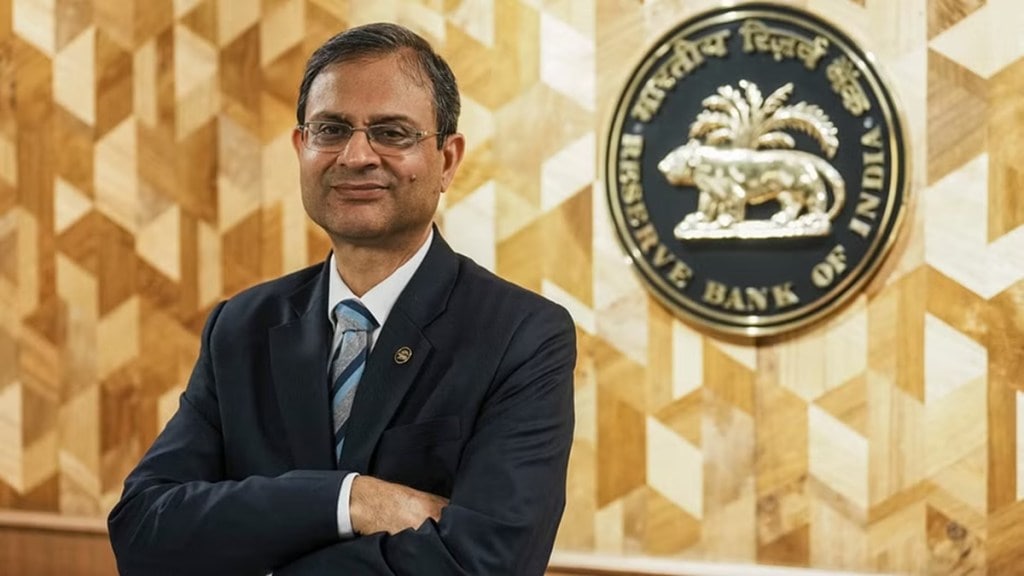RBI Governor Sanjay Malhotra is showing a willingness to allow the rupee to move more freely in tandem with peers in the region, stated a report by Bloomberg citing people familiar with the matter, while maintaining that he is still intervening in the foreign-exchange market to curb excessive moves.
Sanjay Malhotra took charge as the RBI governor in December and has held multiple meetings with departments at the central bank ahead of his first monetary policy meeting, scheduled to be held in February. The report said that he has shown keen interest in the RBI’s currency intervention functions and agreed with his team when they explained the recent movements in the rupee and the need to allow it to depreciate.
Per the people, as cited in the Bloomberg report, the RBI’s overall objective is still to avoid targeting a specific level for the rupee and to intervene regularly to curb excessive volatility and prevent any speculative attacks. The new governor may allow a wider gap in the closing level of the currency from the previous day’s close if the situation warrants.
This signals suggest the new governor’s departure from his predecessor, Shaktikanta Das, who kept a tight rein on the currency. Under Das’s six years at the RBI, the rupee’s volatility slid to the lowest among emerging markets, second only to the pegged Hong Kong dollar. Under Das, the RBI built up the world’s fourth-biggest foreign exchange reserves of more than $700 billion and then used it to defend the currency.
The RBI didn’t immediately respond to an email seeking further information, said Bloomberg.
The rupee weakened sharply, losing as much as 0.14 per cent to touch a new record low of 86.7025 per dollar. It recouped losses soon after to trade at 86.5875 per dollar as of 2:28 p.m. in Mumbai.
Since Shaktikanta Das’s departure, the rupee has slumped 2 per cent against the dollar with the one-month implied volatility jumping to its highest in more than a year. The currency tumbled by the most in nearly two years Monday to cross the symbolic 86 a dollar level. This was fueled by a strong US currency and rising oil prices after sweeping sanctions on Russian energy.
The rupee was among the better performers in Asia last year, falling 2.8 per cent against the dollar. “The RBI’s tight grip over the currency has meant that the currency’s real effective exchange rate, or inflation-adjusted trade competitiveness, against its peers has risen to a record. The 40-country trade-weighted gauge stood at a historic high of 108.14 in November, suggesting an overvaluation of about 8 per cent,” the Bloomberg report stated.
The RBI is keeping a close watch on the real effective exchange rate with November’s overvaluation seen as excessive, the people said. The depreciation in the rupee corrects some of the overvaluation, they added.
Recent portfolio outflows — foreign investors pulled out about $2 billion from local shares so far this year and sold a net $705.5 million of fixed-income securities on Jan 8 — showed a stable exchange rate regime wasn’t sufficient to retain investors.
Meanwhile, last year, exporters had raised concerns with the RBI on how the rupee’s stability was hurting them when rival countries let their currencies depreciate. During the end of Das’s term, the RBI’s policy on this already started changing and now there’s a greater realization that the rupee should be allowed to find its level more freely while keeping a close watch on speculative positions, the people said.
While the RBI will allow greater depreciation in the rupee, the central bank is also keenly aware of India’s rising import bill, they said. India imports nearly 90 per cent of its oil and a weaker rupee has pushed up the country’s energy bill.
The RBI is keeping a close watch on open positions and won’t hesitate to intervene significantly and suddenly to break a speculative build-up, the person said. The RBI also expects the rupee to strengthen after Donald Trump takes charge as the US president next week and sees some stability in the exchange rate by the time of the monetary policy meeting next month.

